
The Left-Green Movement is a eco-socialist political party in Iceland. It is the second largest party in the Althingi, with 11 members of 63 in total, and is currently the leading party in a three-party coalition government formed after the 2017 elections. The party chair is Katrín Jakobsdóttir, MP and the 28th Prime Minister of Iceland since 30 November 2017. The vice chair is Edward H. Hujibens. The secretary-general of the party is Björg Eva Erlendsdóttir. The Left-Green Movement is a member of the Nordic Green Left Alliance.

Janata Dal (United) is a centre-left Indian political party with political presence mainly in Bihar and Jharkhand. The Janata Dal (United) was formed with the merger of the Sharad Yadav faction of the Janata Dal, the Lokshakti Party and the Samta Party on 30 October 2003. Janata Dal (United)'s party mentor and patron is the veteran socialist leader George Fernandes. JD(U) is currently a part of BJP led National Democratic Alliance (NDA).

The Alberta New Democratic Party, commonly shortened to Alberta NDP, is a social-democratic political party in Alberta, Canada, which succeeded the Alberta section of the Co-operative Commonwealth Federation and the even earlier Alberta wing of the Canadian Labour Party and the United Farmers of Alberta. From the mid-1980s to 2004, the party abbreviated its name as the "New Democrats" (ND).

The All India Trinamool Congress is a national level political party in India. Founded on 1 January 1998, the party is led by its founder Mamata Banerjee, who is the current chief minister of West Bengal. Following the 2014 general election, it is currently the fourth largest party in the Lok Sabha with 34 seats.

The Grand National Assembly of Turkey has 600 members, elected for a four-year term by a system based on closed list proportional representation according to the D'Hondt method. To participate in the distribution of seats, a party must obtain at least 10% of the votes cast at the national level as well as a percentage of votes in the contested district according to a complex formula and votes for parties not seated are redistributed to the party that won the most votes. Independent candidates who receive more than 10% of the votes cast in a province are also seated and in the 2007 and 2011 elections members of the Democratic Society/Peace and Democracy Party evaded the threshold by running as independents and winning about 5% of the seats.

India held general elections to the 15th Lok Sabha in five phases between 16 April 2009 and 13 May 2009. With an electorate of 714 million, it was the largest democratic election in the world till the Indian General Elections 2014 held from 7 April 2014.

The 2010 United States elections were held on Tuesday, November 2, 2010, in the middle of Democratic President Barack Obama's first term. During this midterm election year, all 435 seats in the United States House of Representatives and 37 of the 100 seats in the United States Senate were contested, along with 39 state and territorial governorships, 46 state legislatures, four territorial legislatures and numerous state and local offices. Approximately 82.5 million people voted.
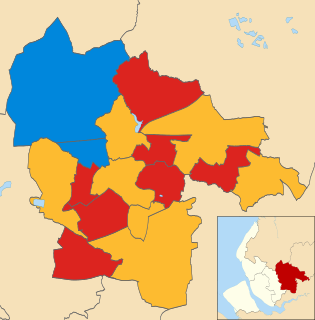
The 2007 St Helens Metropolitan Borough Council election took place on 3 May 2007 to elect members of St Helens Metropolitan Borough Council in Merseyside, England. One third of the council was up for election and the council stayed under no overall control.
The New Democratic Party is a social democratic federal political party in Canada. The party was founded in 1961 out of the merger of the Co-operative Commonwealth Federation (CCF) with the Canadian Labour Congress (CLC). The party sits to the left of the Liberal Party of Canada within the Canadian political spectrum. The leader of the federal NDP is Jagmeet Singh, who won the 2017 leadership election.

Elections to Calderdale Metropolitan Borough Council were held on 4 May 2006. One third of the council was up for election and the council stayed under no overall control with a minority Conservative administration.
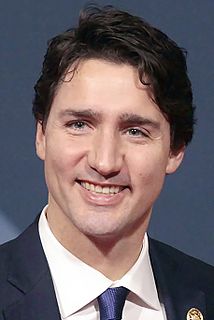
The 2015 Canadian federal election was held on October 19, 2015, to elect members to the House of Commons of the 42nd Canadian Parliament. The writs of election for the 2015 election were issued by Governor General David Johnston on August 4. The ensuing campaign was one of the longest in Canadian history. It was also the first time since the 1979 election that a Prime Minister attempted to remain in office into a fourth consecutive Parliament and the first time since the 1980 election that someone attempted to win a fourth term of any kind as Prime Minister.

The 2011 Amber Valley Borough Council election took place on 5 May 2011 to elect members of Amber Valley Borough Council in Derbyshire, England. One third of the council was up for election and the Conservative party stayed in overall control of the council.
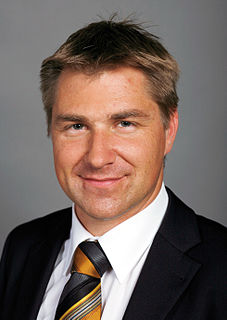
Federal elections were held in Switzerland on 18 October 2015 for the National Council and the first round of elections to the Council of States, with runoff elections to the Council of States being held in various cantons until 22 November.

The 2018 South Australian state election to elect members to the 54th Parliament of South Australia was held on 17 March 2018. All 47 seats in the House of Assembly or lower house, whose members were elected at the 2014 election, and 11 of 22 seats in the Legislative Council or upper house, last filled at the 2010 election, were contested. The record-16-year-incumbent Australian Labor Party (SA) government led by Premier Jay Weatherill was seeking a fifth four-year term, but was defeated by the opposition Liberal Party of Australia (SA), led by Opposition Leader Steven Marshall. Nick Xenophon's new SA Best party unsuccessfully sought to obtain the balance of power.
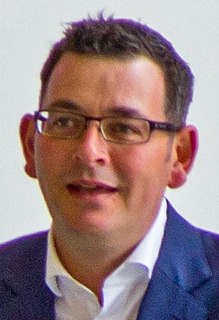
The 2018 Victorian state election was held on Saturday, 24 November 2018 to elect the 59th Parliament of Victoria. All 88 seats in the Legislative Assembly and all 40 seats in the Legislative Council were up for election.

The 2017 United Kingdom general election took place on Thursday 8 June 2017, having been called just under two months earlier by Prime Minister Theresa May on 18 April 2017 after it was discussed in cabinet. Each of the 650 constituencies elected one Member of Parliament (MP) to the House of Commons. The governing Conservative Party remained the largest single party in the House of Commons but lost its majority, resulting in the formation of a minority government with a confidence-and-supply arrangement with the Democratic Unionist Party (DUP) of Northern Ireland.

A general election was held in the U.S. state of Minnesota on November 8, 2016. All seats in the Minnesota Senate and Minnesota House of Representatives were up for election as well as Minnesota's 10 presidential electors and Minnesota's eight seats in the United States House of Representatives. A primary election was held on August 9, 2016.
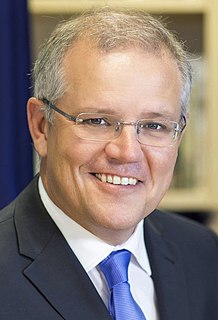
The 2019 Australian federal election will elect members of the 46th Parliament of Australia. The election will be called following the dissolution or expiry of the 45th Parliament as elected at the 2016 double dissolution federal election.

The next New Zealand general election will be held after the currently elected 52nd New Zealand Parliament is dissolved or expires. The current Parliament was elected on Saturday, 23 September 2017. The last possible date for the next general election to be held is Saturday, 21 November 2020.




















